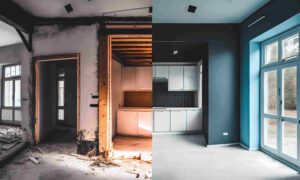
A property with an inground pool might conjure images of summertime enjoyment, get-togethers with family, and an opulent way of life. However, homeowners need to think about the financial ramifications of such an investment before beginning the installation procedure. Understanding how an inground pool impacts the property’s overall value, resale potential, and return on investment (ROI) in addition to the initial expenditure is crucial to this decision.
The Cost of Installation and Maintenance
Installing an inground pool requires a substantial financial outlay. The cost depends on the features, design, and materials used. Water, chemicals, insurance, and routine upkeep are among the yearly maintenance costs in addition to the initial outlay. When considering a pool purchase, many homeowners ignore these costs, which over time can significantly impact the actual cost. Therefore, to properly evaluate the financial impact of this expenditure, it is imperative to account for both installation and ongoing maintenance costs.
Assessing Impact on Home Value
Research shows that adding inground pool ideas can increase a property’s value, depending on the market. Pools typically raise home prices by 5%–10%. However, buyer preferences, neighbourhood cost, and local environment are crucial. The economic benefits may be greater in warmer climates or rich communities with swimming pools. Homeowners can predict property value increases by researching the market and engaging local real estate specialists with best pool ideas.
Return on Investment: What to Expect
Considering installation costs and property value increases is only one part of inground pool ROI. It also involves considering how a pool might enhance the property’s lifestyle. A pool may reduce the need for expensive trips and improve quality of life for many families. Potential sellers should be aware that not all buyers value pools similarly, if money is the main issue. In environments where pools are seen as liabilities, ROI may not match expectations.
Resale Potential and Buyer Preferences
An inground pool might be a double-edged sword when it comes time to sell. Although some buyers actively look for homes with pools, others could be put off by worries about safety, insurance costs, and upkeep. Homes with pools may be especially at a disadvantage in areas with shorter swimming seasons. Homeowners should take into account trends in the preferences of prospective buyers and comprehend how regional swimming pool preferences may affect selling results in order to optimize their resale value.
Conclusion
Careful evaluation of financial considerations, lifestyle advantages, and local market conditions are necessary to determine whether an inground pool is a wise investment. Although, under the correct conditions, it may increase property value and buyer appeal, the high initial outlay and continuing expenses should not be disregarded. You may make an informed choice that fits with your financial objectives and personal lifestyle preferences by carrying out in-depth study and evaluating your particular circumstances.



